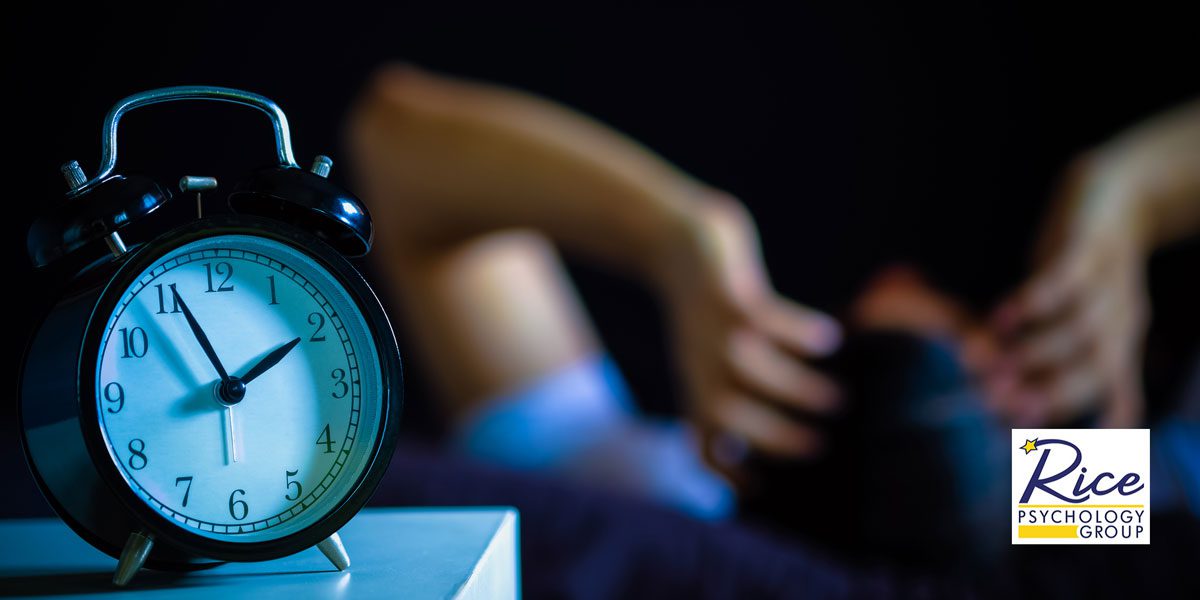Consider the following story as it relates to this week’s topic.
I think it’s been close to three weeks since I’ve had a good night’s sleep. I’ve tried so many remedies to help me, but none have worked so far. I exercise just before bedtime to make sure I’m nice and tired and even spend some time on Facebook to relax me, but nothing helps! My husband, Mark, suggested learning about “sleep hygiene,” something that he read about online. I have no idea what that is, but I’m willing to give it a try. 
How often do you roll around in bed trying to find the most comfortable position, the coolest spot on the pillow, and the best blanket-to-bare-skin ratio to only just lay there hopelessly waiting to drift off to sleep?
The reality is that many of us struggle to either fall asleep right away or get a good night’s sleep altogether. There’s a chance that these troubles are due to poor “sleep hygiene.” We’re sure that you’re wondering what that is, and our Tampa therapists and psychologists will explain it in depth below.
What is Sleep Hygiene?
Sleep hygiene is the act of employing different practices that promote a good night’s sleep and, not coincidentally, good daytime awareness. Just as a lack of body hygiene can lead to the spread of illnesses and diseases, a lack of sleep hygiene can have negative consequences, like poor physical and mental health.
In fact, according to research by the National Institutes of Health, there is evidence that suggests that too much device screen light at night can disturb your body’s metabolism and lead to weight gain or obesity. What does this have to do with sleeping? Well, what do you usually do when you can’t sleep? We’re guessing that you reach over for your smartphone and spend a while using it.
What You Can do to Catch Those Elusive Zzz’s
Although we believe it’s in your best interest to establish effective sleep hygiene habits, we also understand that it can be tough to do so. Start by following the next set of practices for a good night’s sleep:
- Avoid Stimulants – Caffeine and nicotine are nightmares for your sleep, especially if consumed close to bedtime. And although alcohol may help you fall asleep initially, you may wake up later in the night as your body processes it. If you use stimulants of any kind, use them during the first part of the day. Have a decaf in the afternoon.
- Exercise Earlier Rather Than Later – Exercise is great for your sleep if done no later than two hours before bed. This is because the activities in a workout rev your body up, making you feel energized at a time when you should begin to feel sleepy. Allowing some time to pass after a workout allows your body to slow down and feel exhausted, bringing about sleepiness.
- Avoid Heavy Foods – Heavy, greasy, and spicy foods can trigger heartburn and indigestion, which can keep you from falling asleep.
- Turn Off the light – Your body’s sleep/wake cycle, known as the circadian rhythm, follows day and night, so try to get some sunlight throughout the day and darkness at night.
- Establish a Routine – Your body will recognize your bedtime if you establish a regular nightly routine. Take a bath, prepare the next day’s wardrobe, or read a book to give your body a heads up that it’ll soon be time to sleep. Also, plan to wake up at the same time each day, even on the weekends.
- Avoid Electronics – TV and smartphone screens can make it difficult to get the sleep you deserve. Set strict “no screen” rules for yourself and your family after a certain time in the evenings, if need be, to promote better sleep for the entire household.
- Take a Short Nap – If you are inclined to take lengthy naps during the day, you should know that they can alter your evening sleep schedule. Try to keep your naps short, about 20 or 30 minutes maximum.
Our Tampa, FL Psychologists Are Here for You
If you or someone you love is having trouble sleeping at night, then it may be time to dig a little deeper to find the cause. Our Tampa psychologists and therapists are ready to help, so give us a call or send a message over to us today to schedule an appointment at your convenience.

